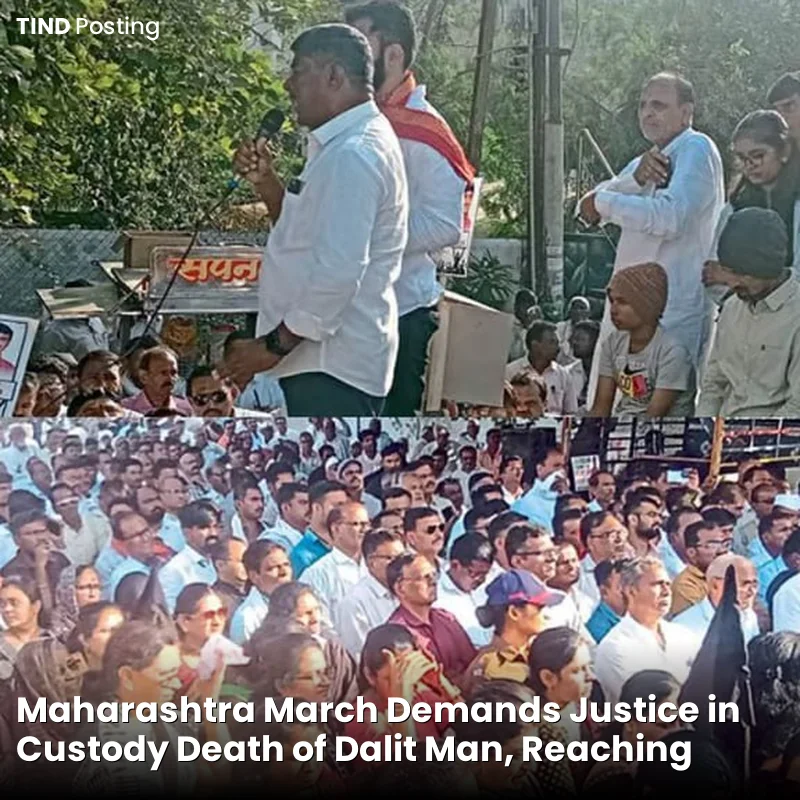A significant protest is currently underway in Maharashtra, India, as people march to seek justice for Somnath Suryawanshi, a Dalit man who died while in police custody in Parbhani. The march began on January 17th in Parbhani and is scheduled to conclude in Mumbai between February 17th and 20th. Organizers have stated that the demonstration includes a wide variety of people from different backgrounds and several social organizations. The main purpose of the march is to raise awareness about Suryawanshi’s death and demand that those responsible are held accountable.
The participants are walking to demonstrate their deep dissatisfaction with the lack of movement in the case. They explain that despite numerous meetings with government officials, no real action has been taken. According to one of the organizers, government officials meet with them regularly but have not made any real commitments to addressing their concerns. This quote underscores the fundamental issue driving the march: the perceived failure of the government to take the investigation into Suryawanshi’s death seriously.
Furthermore, the march aims to put pressure on the government to conduct a comprehensive and transparent investigation into the circumstances surrounding Suryawanshi’s death while in judicial custody. This situation has brought attention to the wider problem of how Dalits are treated within the justice system. As the march progresses toward Mumbai, it is gaining more support. Mumbai offers a larger platform that can amplify the case. This incident has highlighted questions about fairness and equality that many believe require immediate attention.
Ultimately, this event is a powerful reminder of the importance of human rights and the ongoing pursuit of justice. The implications of this case are far-reaching, extending beyond this single incident and influencing discussions surrounding law enforcement, marginalized communities and government accountability in India. The march itself is a physical demonstration of the community’s struggle to have their voices heard and to push for concrete action from the government.
